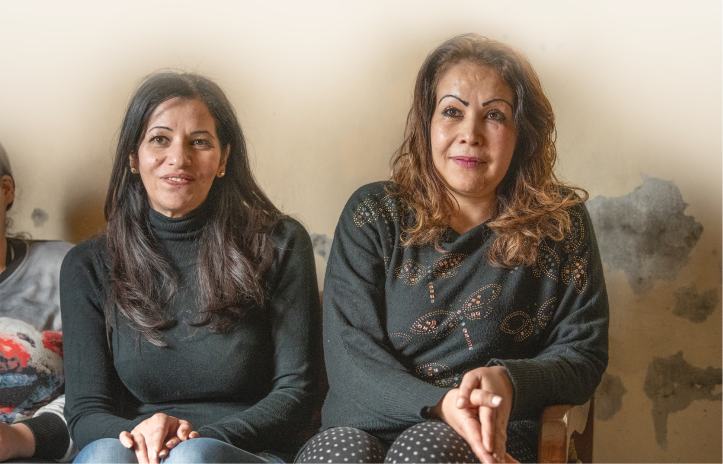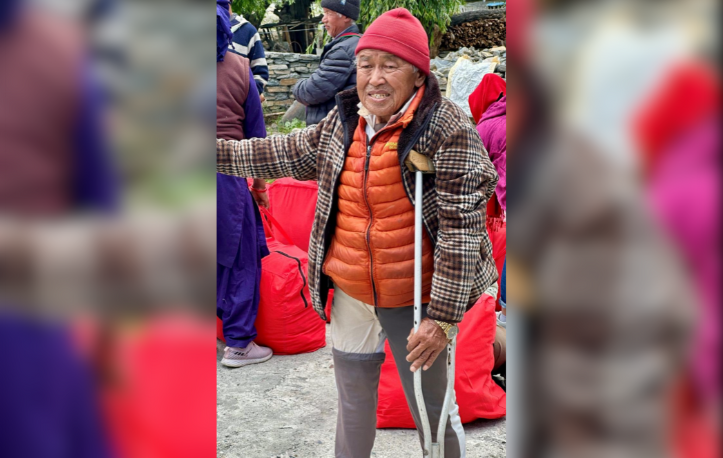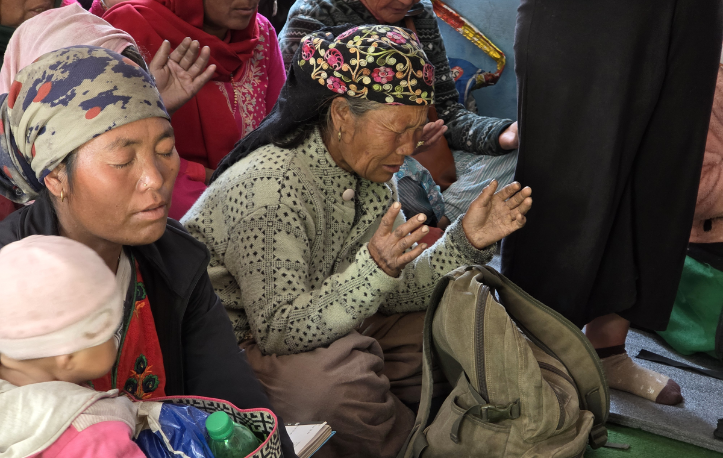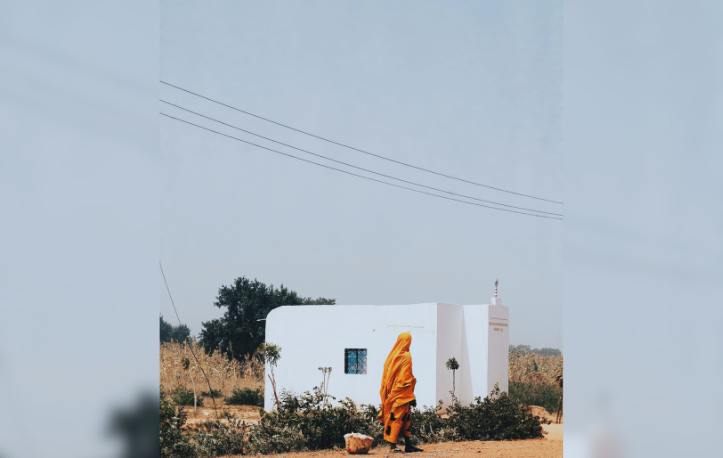When Rajaa and her sister, Samia, talk about the gospel, their eyes sparkle. The joy on their faces, however, belies the suffering they endured after civil war erupted in Syria more than a decade ago.
“We discovered the real living God,” said the younger sister, Samia, speaking of the newly awakened faith they experienced after fleeing their war-torn homeland.
“Jesus has changed my life radically,” Rajaa added.
But even as the women share testimonies of God’s salvation and restoration, the shadow of death from which they narrowly escaped is never far away.
The Outbreak of War
In March 2011, pro-democracy activists launched a campaign against Syria’s repressive dictatorial regime, organising massive demonstrations in several cities. Demonstrators were inspired by the Arab Spring protests in Tunisia and Egypt that led to new governments in those countries.
In Syria, though, the peaceful protests quickly devolved into armed rebellions when numerous rebel factions, including Islamist groups like al-Qaida and the self-proclaimed Islamic State (ISIS), began fighting Syrian government forces. As war engulfed the country, the Islamist groups took advantage of the chaos to target Christians.
Rajaa and Samia were from a traditionally Christian family and lived in a predominantly Christian area where Muslim extremists began their assault.
At first, ISIS fighters marked Christians’ houses with a cross, and then they began shooting at the homes while hurling insults at the Christian residents. “They used to call us names like pigs and some very diminishing, belittling names,” Rajaa said. “Of course, they used to call us blasphemous kafirs [infidels]. They wanted to Islamise us by force.”
“They will take whatever for their physical enjoyment,” Samia added. “They think they can use us for abuse, rape, whatever.”
Samia had been married for six months when, about two weeks before Christmas 2011, Islamists launched an attack near her home. She and her husband stayed inside as fighting between ISIS militants and government troops raged nearby.
After three days and nights, the couple ran out of food. Though sporadic fighting continued in the area, Samia’s husband, Habib, decided to leave the house to look for supplies. That was the last time Samia saw him alive.
Samia was terrified when Habib failed to return, but she couldn’t contact anyone for help because electricity and phone services had been out for days. She waited a day and a half before leaving the house to search for him. When she found his body lying in a street, he was barely recognisable.
“I started screaming and shouting and crying,” Samia said. “There was nobody, no man to help me. I went there and started dragging him.” Others slowly appeared and tried to help Samia, but then they urged her to seek safety indoors. “Leave him!” they shouted. “If you try to take him, they will kill you as well!”
That night, with the sound of gunfire still erupting around them, Samia and others from her neighbourhood fled on foot. Forced to leave her husband’s body, she would never learn what happened to him.
Eventually, Samia reached her parents’ home, but her sense of safety there was short-lived.
Surrounded by Terror
In January 2012, ISIS fighters invaded the area where Rajaa lived with her husband, Fouad, and their baby. It then became clear why the Islamists had marked Christians’ houses.
“They had a list of the names of the Christians for execution,” Rajaa said. “Our neighbours came and told my husband, ‘Get out of here, we have to get out of here. They want to kill Christians’.”
From inside their home, Rajaa and her husband could hear intermittent street battles that continued for weeks. During that time, they heard about Christians being abused all around them.
The Islamists executed some of the Christians, forcing them to stand against a wall with outstretched arms in the form of a cross while they shot them with automatic rifles. They also abducted, raped and killed Christian women, while torturing and burying alive some of the men.
On 7 February, the area around Rajaa’s house was consumed by a full-scale battle. When extremists shot out the windows in their home, Fouad told Rajaa to take their baby into a back room and hide while he took a rifle and went outside to fight.
Fouad was quickly wounded and captured by ISIS militants, who beat him and tried to crush him by standing on top of him. Then they injected diesel fuel into his veins. After torturing him for seven hours, they left Fouad on the porch of his house so his family would witness his agony. Though in great pain and struggling to breathe, he was able to tell Rajaa what had happened before he died.
“They attacked him because he was Christian,” Rajaa said. “That night he departed from his body to the Lord. He was really very courageous. He did not want to bow, except to Jesus. That is how he was.”
During a lull in the fighting, a group of Christian men quickly buried Fouad in a local cemetery, without a funeral. Rajaa then took her baby and fled to her parents’ house, moving in with them and her sister, Samia.
As ISIS fighters gained control of more territory, the two sisters and their family were again in great danger. When Islamists tried to break through the door of their parents’ house, Rajaa and Samia’s father, Nader, tried to protect the family. The militants beat him but eventually left the house. Nader, who was approaching 70 and battling health problems, never fully recovered from the assault.
Around that time, the family learned that Rajaa and Samia’s brothers, along with two additional male relatives, had also been killed in the fighting. “All the young men in the families were taken and mercilessly slaughtered,” Rajaa said. In total, six adult men in their family were killed.
Within a month of the attack on Nader, the militants fired a rocket propelled grenade into their living room, destroying the house. The family survived but were forced to flee on foot to a neighbouring country, where they believed they would be safe.
“We just ran with the clothes which were on us,” Samia said.
Escape and New Beginnings
The sisters and their surviving family members were determined to get out of Syria, but travelling on foot with a five-month-old baby and their elderly parents was difficult. In addition, they had to dodge areas of combat as they headed for the border.
“My father would walk half an hour and then he would collapse,” Samia said. “We didn’t have any men or brothers to help us to hold him. All our men were gone. We had Jesus only.”
The family walked for about a week before reaching the border, sleeping on the ground and surviving on what food they could find. “We were like out of our minds,” Rajaa said. “We didn’t even recognise days, nights, how many hours, how many days.” She said they could not sleep, and at their lowest point, they couldn’t even walk and were forced to crawl.
Rajaa and Samia’s mother, Nawal, said she cried to the Lord for help during those difficult days, and He provided. “Even until now,” she said, “every time I feel very desperate I say, ‘Lord, Lord’, and I feel like [there is] a light shining in our darkness.”
After crossing the border into a neighbouring country, the family received emergency housing and basic supplies. Then they began to process the nightmare they had just escaped from.
Samia had just begun married life when her husband, Habib, was killed. “I talked to God,” she said. “Why did You do this to me?” she asked Him. “Did I do something wrong?”
When she confronted God with her feelings, she said He provided comfort. “Every time I talked to God like this, afterward I felt very much at ease and at peace,” she said.
Rajaa’s daughter, Yara, now 13, never knew her father and still struggles with that loss. “When I walk on the streets, I sometimes see a father tapping on his daughter or cuddling her, caring for her, and I say, ‘Lord, why did You allow this to happen to me not to have a father?’”
The family lived in a tent at a refugee camp for two years, and their sorrows were compounded when Nader died of a stroke. Most of the other refugees were Muslims who didn’t accept them. But with help from the global body of Christ, they eventually found a more secure place to live.
A local pastor also started teaching them more about the Bible. “When the pastor told us all the Good News, I felt like I am a little baby,” Rajaa said. “I was really born again, like a little new baby. It was a spiritual birth, something giving me comfort, something new I didn’t know before.”
Samia described experiencing a similar revival of faith. “When we read the Bible,” she said, “we feel like a new birth is being done in our heart by Jesus Christ.”
The two sisters, along with their pastor, now regularly deliver aid and share the gospel with Muslim refugees. “This is the first time I have seen non-Christians hear about Jesus and accept Christ!” Samia said, her eyes sparkling with joy.
Ongoing Pressure and Enduring Hope
The family still faces many challenges. They live in a Muslim-majority area where some men view them as prey because Christian women are often considered immoral; Samia suffered an attempted attack by a Muslim man.
“[The Muslim men think] maybe these Christian ladies are like the ladies they see on television and they can do whatever they want with them,” their pastor said.
But despite all they have endured and their ongoing daily trials, the four women — the sisters, their mother, and Rajaa’s daughter — said they have learned much about God.
“As far as I am concerned, ‘The Lord is my shepherd, and I shall not want,’” Rajaa said, quoting Psalm 23.
“I discovered that God will never forsake anybody who seeks Him with a whole heart,” added Samia.
Their mother, Nawal, said in turn, “He is our Lord, our Saviour and I learned a lot from Him; He is supportive and patient and faithful.”
Finally, Rajaa’s teenage daughter, Yara, summarised a profound lesson: “I learned that our Lord is the only one who can continue standing near us during the most difficult times of our life to give us hope and peace and faith and joy and strength to live.”
The four women request prayer for God’s provision, as they continue to hope for an eventual return to their Syrian homeland.
“We want to go back and tell them about Jesus,” they told their pastor, wondering if they could somehow utilise the parents’ bombed, roofless home. “Maybe we could cover it in some way,” they suggested, “so we can start preaching Christ through our destroyed house.”
Despite, and partly as a result of, their deep suffering and personal loss, the four women long to share the hope of Christ with their countrymen who are in desperate need of reconciliation with one another and the God who loves them.




Submit a Prayer